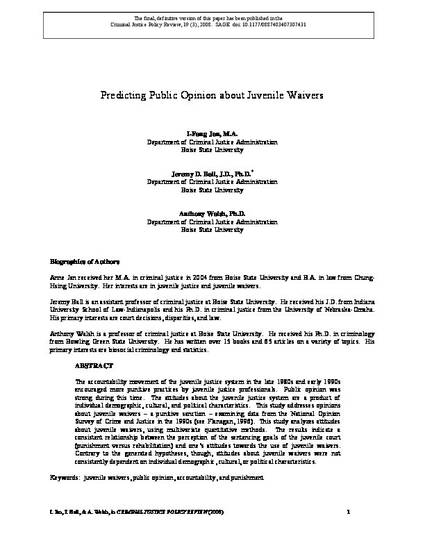
The accountability movement of the juvenile justice system in the late 1980s and early 1990s encouraged more punitive practices by juvenile justice professionals. Public opinion was strong during this time. The attitudes about the juvenile justice system are a product of individual demographic, cultural, and political characteristics. This study addresses opinions about juvenile waivers–a punitive sanction–examining data from the National Opinion Survey of Crime and Justice in the 1990s (see Flanagan, 1996). This study analyzes attitudes about juvenile waivers, using multivariate quantitative methods. The results indicate a consistent relationship between the perception of the sentencing goals of the juvenile court (punishment versus rehabilitation) and one's attitudes towards the use of juvenile waivers. Contrary to the generated hypotheses, though, attitudes about juvenile waivers were not consistently dependent on individual demographic, cultural, or political characteristics.
The final, definitive version of this paper has been published in the Criminal Justice Policy Review, 19(3), 2008. SAGE Publications, Inc. All rights reserved. DOI: 10.1177/0887403407307431
Available at: http://works.bepress.com/anthony_walsh/3/
